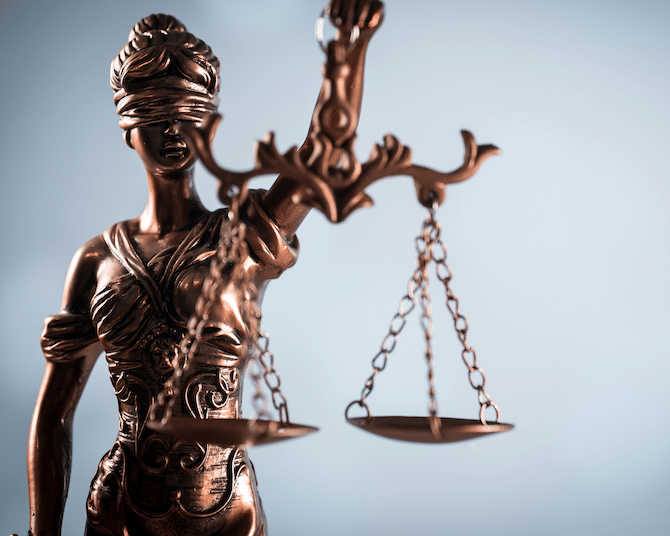SLAPP stands for Strategic Lawsuits against Public Participation. Freedom of expression is a fundamental human right that allows individuals to express their thoughts, opinions, and beliefs without fear of retaliation. However, sometimes this freedom can be threatened by Strategic Lawsuits Against Public Participation, commonly known as SLAPP. SLAPP lawsuits are filed by individuals, organizations, or corporations to intimidate, silence, or punish those who criticize them or their activities.
In a SLAPP lawsuit, the plaintiff sues the defendant for example, not limited to, for allegedly making defamatory statements, even if those statements are true. The plaintiff’s aim is not to win the lawsuit but to intimidate and silence the defendant, using the legal system as a weapon.
SLAPP lawsuits are often used by corporations, politicians, and individuals to silence whistleblowers, activists, journalists, and others who speak out against them.

SLAPP lawsuits are not only a threat to free speech but also to democracy. They can have a chilling effect on public participation and the ability of citizens to hold powerful entities accountable. SLAPP lawsuits can be financially ruinous for defendants who cannot afford the high cost of litigation, even if they have a valid defense.
To address the issue of SLAPP lawsuits, some countries have enacted Anti-SLAPP laws. These laws provide defendants with a mechanism to quickly dismiss SLAPP lawsuits and recover their legal fees. Anti-SLAPP laws help protect free speech and prevent the abuse of the legal system by those seeking to silence criticism and dissent.
SLAPP lawsuits have been a problem for many years, but the issue gained widespread attention in the 1980s and 1990s. During this time, there were numerous cases of corporations, developers, and government officials using SLAPP lawsuits to silence critics and activists who opposed their activities.
One high-profile case was the McLibel trial, in which McDonald’s sued two activists who had distributed leaflets criticizing the fast-food giant’s practices. The case lasted for ten years and became the longest trial in British history. Despite the fact that the activists had limited financial resources and no legal representation for much of the trial, they ultimately won the case.

Another well-known case was the Texaco lawsuit against a group of Ecuadorean villagers who had accused the company of polluting their land. Texaco filed a SLAPP lawsuit against the villagers, claiming that they had defamed the company. The case dragged on for years and was eventually settled out of court.

In addition to SLAPP lawsuits filed by corporations, individuals have also used the legal system to intimidate and harass others for personal reasons. For example, some people have filed frivolous lawsuits against their neighbors or former partners as a way to exact revenge or exert control.
In recent years, the rise of social media has made it easier for individuals to express their opinions and share information with a wider audience. However, this has also led to an increase in SLAPP lawsuits filed against individuals who have criticized or exposed the wrongdoings of others. As a result, many countries have recognized the need to protect citizens from SLAPP lawsuits and have enacted laws to prevent their abuse.
In conclusion, SLAPP lawsuits are a threat to free speech and democracy. Anti-SLAPP laws provide an important tool to protect citizens from the abuse of the legal system. By working together to combat SLAPP lawsuits, we can preserve our fundamental rights to free speech and public participation.

Take Action!
Submit a Petition against SLAPP lawsuits
https://epetitionen.bundestag.de
It is the responsibility of the government to prevent lawsuits like SLAPP lawsuits and to ensure that the population is not pursued civilly or criminally without cause. Therefore, lawsuits like SLAPP lawsuits, which lack any legal basis and are unfounded in substance, are, in my opinion, illegal because innocent citizens are unjustly pursued civilly or criminally.
According to my understanding of the law, it is unlawful to even file lawsuits that have no legal basis. If a private person, organization, or company pursues someone without legal basis, it is called “unfounded civil pursuit” in civil law in Germany. This can involve unfounded claims, warnings, or lawsuits, for example. In criminal law, it is referred to as “unfounded criminal prosecution”.

When it comes to the right to regulate minor offenses, it is referred to as an “unfounded administrative offense pursuit” or an “unfounded minor offense pursuit”. This involves an accusation of a minor offense, such as a traffic offense or a violation of environmental law, without any legal basis for it.
What legal remedies can I take against whom for this?
The legal remedies available in a specific case depend on who is carrying out the unfounded pursuit and which area of law is affected. However, there are several legal remedies that can be considered as follows, not limited to:
- Objection: An objection can be lodged against decisions by authorities. For example, if a minor offense report is unfounded, an objection can be made against the fine notice.
- Lawsuit: A lawsuit can be filed if there is an unfounded civil pursuit. In this case, it is advisable to consult with a lawyer to assess the chances of success.
- Criminal complaint: If there is a suspicion of unfounded criminal prosecution, a criminal complaint can be filed against the investigating authorities.
- Compensation: If you have suffered damages due to an unfounded pursuit, you can claim compensation. In this case, it is important to carefully examine the claims on a case-by-case basis and, if necessary, enforce them through the courts.

To: Lawsuit in Civil Right
It is possible to file a lawsuit for injunction if you are being unjustly pursued by a person, organization, or company without legal basis in civil law.
If a lawsuit or claim is unfounded, you can file an application for a negative declaratory judgment. A negative declaratory judgment is a lawsuit that allows you to legally establish that the claim or lawsuit against you is unfounded. This can prevent the person, organization, or company from continuing to unjustly pursue you.
Alternatively, you could also apply for a temporary injunction to prevent the person, organization, or company from continuing to unjustly pursue you. A temporary injunction is a court order that prohibits a person from carrying out certain actions.
Where can I file the mentioned legal remedies?
The mentioned legal remedies can be requested from the relevant civil courts. If you wish to apply for a negative declaratory action or an interim injunction, you must contact the competent court that is responsible for your case.
For example, if you were sued by a person, organization, or company in front of the district court, you would have to contact the competent district court to apply for a negative declaratory action or a temporary injunction.

However, it is advisable to consult with a lawyer to determine which options and steps are best in your specific case.
To: Criminal Complaint in Civil Right
“Misleading the justice system”, § 343 StGB
If you believe that a person, organization, or company intentionally provided false or misleading information to the judicial authorities in order to bring an unjustified lawsuit against you, this may constitute the criminal offense of obstructing justice.
In such a case, you could file a criminal complaint for obstructing justice. This would mean that you suspect that a person deliberately and intentionally provided false or misleading information to the judicial authorities in order to bring an unjustified lawsuit against you.
“Misleading the justice system” is a criminal offense under § 343 of the German Criminal Code (StGB). The offense is defined as follows:
Ҥ 343 StGB РMisleading the administration of justice
(1) Anyone who intentionally or knowingly
gives a false affidavit before a court or another authority authorized to take oaths or causes or attempts to cause such an affidavit to be made by invoking a source that corresponds to the untruth, or gives a false statement before an authority or service provider authorized to receive complaints or investigations or in a hearing before a committee of the German Bundestag or a state parliament or a committee appointed by it, or causes or attempts to cause such a statement to be made by invoking a source that corresponds to the untruth, as referred to in No. 1 in a manner specified there, shall be punished with imprisonment for a term of six months to five years.
(2) Attempted commission of the offense is punishable.
(3) In cases of minor importance under paragraph 1, the penalty is imprisonment for a term of three months to five years.
(4) The fact that the false affidavit or statement was not caused by the offender does not prevent criminal liability under paragraph 1.”
If a person intentionally gives false or misleading information in court or makes a false affidavit to deceive the justice system and pursue an unjustified lawsuit against someone, this can fulfill the offense of misleading the justice system.


Leave a Reply